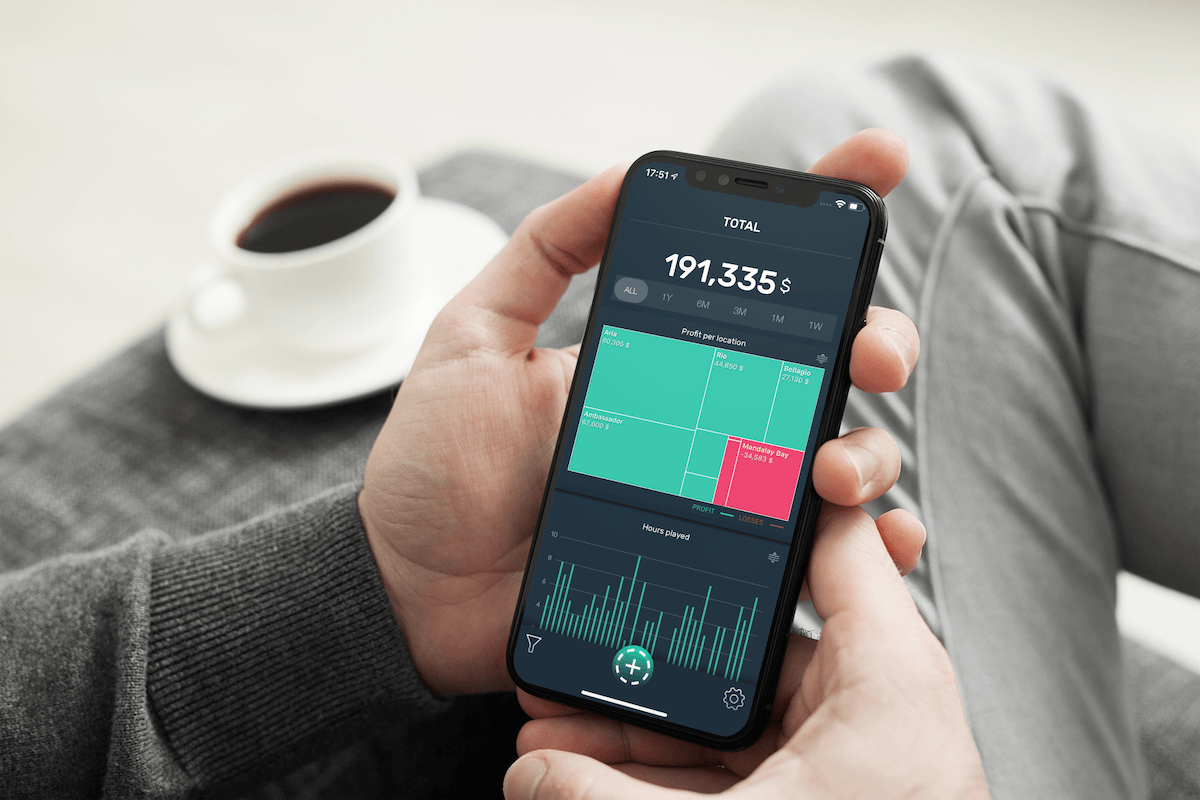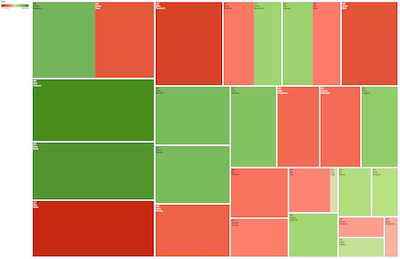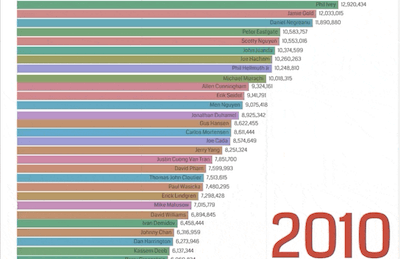One of the most common questions asked by new players is this: how exactly do I get good at poker? Well, the answer to this question is far more complex than you might at first think, as getting good at poker requires a range of different skills, all of which need to be perfected before you can even start competing with the best players around. What’s more, the learning never stops – even players like Daniel Negreanu are constantly having to update their game to deal with new disruptive forces within the poker world.

The fact is this: becoming a great poker player takes years of dedication, as well as a keen enthusiasm to continually add to your skills. That being said, there are a number of different tips and tricks you can use to get better at the game. Instead of deciding to present just 10 quick poker tips or similar, we’ve instead created a detailed list of 22 top tips below, which you can use to improve your poker game…
22 Ways to Improve Your Play
Ready to learn some ways to improve your poker? They’re not always easy ways, as many of them require hard work, concentration and dedication to perfect, however you should find that each of the 22 tips below really do improve your game hugely, and that when combined together, they’ll make you into a serious force at the poker table, whether that’s online or in your local casino.
1) Understand the Concept of “Ranges”
The first thing to work on is your understanding of ranges. But what exactly are they? Well, while new players will try to put an opponent on a specific hand, more experienced players will instead try to work out the range of cards they could have. Therefore, they go through the entire selection of possible hands the other player could have and then work out how likely it is that they will have a hand that beats theirs.
For example, a poor player might think that their opponent has AA in their hand, giving them a full house. A half-decent player will realise that putting an opponent on an exact hand is almost impossible and will instead say that their opponent could have a full house, however they could also have trips, two pair or, based on their previous loose play, they could be bluffing. It’s then a case of working out how likely each option is and playing the hand based on facts, not solely on intuition.
2) Know When to Fold ‘Em
The vast majority of top poker players do one thing more than anything else when playing: fold. This is because they recognise that the majority of cards and situations aren’t conducive to calling or raising. If you want to become a top player like them, you have to realize that you must play fewer hands and only risk money on strong hands. Poker rewards good play, which includes knowing when to use poker lingo like 'muck' to make the right decisions.
Playing fewer hands will mean that you always have a fair chance of winning when you get involved in a hand, plus you’ll begin to build a reputation as a tight player – something that can be useful later on in a game, should you be in a position where you’re thinking about bluffing.
3) Understand the Importance of Position
New players might not think about their table position , however all experienced players will know that position plays a huge role in how you should play a hand. The rule is essentially this: the earlier you have to act, the worse position you’re in, as you’re not getting the chance to observe other players and see how they act. So, make a big bet with an average hand when you’re one of the first to act and there’s no telling whether you’ll be called by someone with a far stronger hand than yours.
If your turn is somewhere around the button, you’re in a much stronger position. You can then check out what opponents are doing and act appropriately. Poker is all about trying to minimize as much risk as possible, and you can help do that by playing your position intelligently. Of course, don’t be afraid to bet early if you have a monster hand, however!
4) Recognize and Remove Tilt
Tilt is the enemy of every poker player, and it’s something that must be removed from your poker game if you’re going to become even an average player. Tilt is when you suffer a bad beat and then go on something akin to a poker rampage, making poor and aggressive decisions on every hand, without any thought of playing sensibly and protecting your bankroll. As you might imagine, this usually ends up with you losing even more money.
You must work out the best way to eliminate tilt from your game, and many find that this means getting up from the table and giving themselves a break from the game, to let themselves calm down. True, you might miss a fantastic hand, but you will also probably prevent yourself from losing money on most other hands.
5) Pick Games Carefully

In order to be a successful player, you must learn how to pick your games properly. This means you should be looking for a game with plenty of multiway pots or players who are regularly limping. You should also look for a game that has plenty of reraises, or alternatively hardly any reraises at all. All these factors give a decent player an increased chance of winning money.
Also, try to avoid tables with strong players. Sure, you might occasionally learn something about poker strategy from them, however it’s often going to cost you a large sum of money to do so. A player’s strength will be relative to your ability, however, so the better you get, the fewer players there will be to avoid.
6) Fast-Play Strong Hands
You’ll notice that top players fast-play the majority of their strong hands, and this is for one main reason: to build the pot and therefore win more money. Fast playing a hand means not being afraid to bet, which will not only build the pot, but also potentially chase off others waiting for a draw that could beat your hand.
Many amateur players often do the opposite, however. Whether they’re afraid of betting too much or whether they think fast-playing will scare other players away, they often decide to slow play a hand instead. There is a time for slow playing a hand, but more often than not, fast play is a much better choice.
7) Bluff with Draws
Bluffing is undoubtedly an art that anyone looking to become a top player must master. What often differentiates new from experienced players is when they bluff. New players will sometimes bluff at the most inopportune times, however many experienced players will limit their bluffing to times when they still have outs. This is known as a semi-bluff.
By semi-bluffing, you’re still giving yourself a chance of winning if you’re called, providing you’re not bluffing after the river. For example, if you have J-Q and the board shows 3-5-9-10, you would only have high card. If your bluff is called, however, there’s a chance that you’ll complete your straight and have a winning hand.
8) Defend Your Big Blind Regularly
While you shouldn’t be defending every big blind, you should be staying involved in hands where you’ve placed the big blind more often than other hands. This is because the pot odds are automatically better, as you’ve already made a mandatory bet. Pot odds also pop up later in this list.
Defending your big blind is more important during tournaments than during cash games, especially when you’re in the latter stages of a tournament and the big blinds are considerable. Not winning back your big blind during a tournament could see you falling down the leaderboard, and possibly even sacrificing any chances of winning.
9) Be Ruthless Against Weakness
It might make some people uncomfortable, but poker is all about rooting out weakness and then exploiting it as much as possible. Even as a half-decent poker player, you should be able to spot the fish at the table and then adapt your tactics to primarily focus on them. If you can’t find any fish, it’s probably not the right table for you!
It's also the case that many stronger players have certain areas of their games that are weak. For example, you might notice that one specific player is often reluctant to call larger bets, or that another player calls too often. Identify these little chinks in the armor of other players and concentrate on them, while still taking opportunities elsewhere on the table to make money.
10) Understand Pot Odds and Equity
Pot odds and equity are two of the most important aspects of online poker. They are used to work out whether it’s mathematically worthwhile calling a bet, or whether the best play is to fold and save your chips for another hand. If you want to compete at the poker table and make money over a period of time, you must learn poker odds.
There’s lots to learn about pot odds and equity, so we’re not going to go over them in detail here. Instead, you should check out our comprehensive article on mathematics in poker to find out exactly how to use math to your advantage while playing.
11) Don’t Overstretch Yourself
At most online poker sites, you’ll find an array of different games and different levels, ensuring that every poker player can enjoy a game that’s perfect for them. Because of the huge range of different options, it can be tempting to immerse yourself in them all, but that would be a mistake.
Instead, we’d recommend initially focusing on just one type of poker – most will choose Texas hold’em, as it’s the most popular poker variation by far. If you overstretch and try to learn multiple game types at the same time, you’ll find it takes you much longer to start making money. Once you’re a great player of one poker type, then branch out and start playing a new version.
12) Play Your Opponent, Not Just Your Cards
It’s one of the oldest adages in poker: play your opponent and not just your cards. This means that you should play hands differently depending on who you’re up against. By doing so, you’ll maximize the money you make, while minimizing the money you lose.
For example, imagine you have two pair – not the strongest hand possible with the cards on the table, but still reasonable. If you’re playing a more aggressive player, you could easily pin them on a lower hand than yours. If, however, the opponent is known for being tight, there’s a better chance they’ll have you beaten.
13) Use Poker Software
Poker software is something of a contentious issue, with some poker platforms even going so far as to ban players from using it. If you play at a site that does allow software, however, you should absolutely be using it on every hand. This is because the majority of other serious players will be, so you’ll find yourself at a big disadvantage if you don’t.
Poker software can provide a whole range of different pieces of information about any game, from stats on opponents, through to various reports on how you’re playing. There are many different pieces of poker software out there, however two of the most popular are Holdem Manager 3 and Poker Tracker 4 .
14) Stop Limping
For new poker players, simply calling the big blind can look like the best option. The thing is, however, it usually isn’t. By only limping into a pot, you’re sending out huge signals to other players that you don’t have a great hand. After all, wouldn’t you have raised the pot if you were sitting there with something strong?
Instead of limping, you should usually be folding or raising. If you think your hand isn’t worth a raise, it isn’t generally worth being in the hand at all. And if your hand is particularly strong, you should be raising to price all the worse hands out of the pot. So, either be cautious and fold, or be more assertive and raise – the middle option of limping is not often the correct route to take.
15) Become a Student of the Game

Like many things in life, getting good at poker relies on two things: practical experience and study. When it comes to the latter, you should be taking every opportunity you can to learn from the biggest and best players in the game, absorbing their knowledge and tactics to give you more options when you’re next at the table.
There are many great poker tutorials to be found on YouTube, plus many poker players have deals with poker sites to produce tutorials. Those looking to master more complex aspects of the game are better off getting a poker coach , however. They might be expensive, but a top coach should improve your game hugely.
16) Think About Bet Size
Many people overlook bet sizing when trying to master poker tactics, however it’s very important. After all, a bet that’s too high for a specific situation will cause others to fold, when you really want a call, while a bet that’s too small won’t scare others away, or won’t see you winning as much as you perhaps should have.
Deciding how much to bet is actually quite a complex process, which has to take into account previous action, the players left in a hand, stack depth, pot odds and more. Therefore, mastering this skill is something that can take quite a while.
17) Always Play Within Your Means
This is an extremely important point, as those who fail to play within their means almost always fail to become top poker players. To ensure you play within your means, you have to understand bankroll management. This system will make sure you’ve always got enough money left over for another day, and that you don’t often run out of cash – something that can stop your poker practise in its tracks.
Bankroll management is something we’ve written about before, so why not find out more about it by reading through our article ? Don’t forget that the Poker Stack app is the perfect option for those looking to monitor their poker playing and perfect bankroll management. It can be downloaded for free on both iOS and Android devices.
18) Don’t Get Over Tempted by Draws
The feeling of hitting a draw and making your hand is a fantastic one, however trying to complete your straight or hit the fifth card needed for a flush isn’t always the right decision. A top player will instead be able to balance up the math of the process and decide if trying to hit a draw is the right option.
In order to decide whether trying to hit a draw is worth it, you need to balance up whether the pot odds and potential returns work in your favor. If they do, then call, but if they don’t, you should fold. Stick to this principle when it comes to draws and you should find yourself making money over the long term.
19) Concentrate on Mental Toughness
Poker might not require the ability to run a 4-minute mile or bench press a small car, however it does require a huge amount of mental toughness. At first, those experiencing a bad beat will let it affect them hugely, often leading them to go on tilt and squander all their money within a few hands, however more experienced players have the mental fortitude needed to ride through the bad beats and trust that they’ll make money in the long run.
You’ll also need the mental toughness to stand up to other players at the table. While most don’t overstep the line, you will come up against players who barrage you with comments and thinly veiled insults, and you need to learn to block them out and concentrate solely on the game. Once you’ve mastered this, you can then start needling other players in an attempt to gain an advantage!
20) Review Your Hands
The best way to get a true feeling for how well you’ve played a hand is to review it later. In the heat of a game, you might think you played a hand perfectly, but you still ended up losing. Replay it later and you might be able to find some key weaknesses in your play that you can remove from your game.
Many poker sites will have a feature that allows you to watch previous hands, plus you can also use poker software. You should be looking at not only the way in which you played your hand, but also at how others played too. Don’t make the mistake of just reviewing hands that went badly either – take a look at more successful hands too and work out what you did correctly in them.
21) Resist the Temptation to Bluff
Those who haven’t played poker before often have an image of the game being full of bluffs, with players constantly trying to fool everyone else around them. The reality, however, is that bluffs are not made all that often by the best players. This is especially the case in online poker, where it’s more difficult to read your opponent and decide if they’re susceptible to a bluff or not.
So, how often should you bluff in poker? The answer really depends on a whole host of situations. Quite simply, you should bluff only when you think you can get your opponent to fold. You’ll need to evaluate the board, their range, the pot size, and much more. If you’re ever in doubt about whether to bluff, it probably means that it’s not the optimal time to do so.
22) Enjoy Yourself!
This is, without doubt, the most important thing of all: if you want to become good at poker, you absolutely have to enjoy playing. If you love the thrill of seeing the river card come down and embrace the random nature of the game, you’ll be more inclined to learn to play properly and spend the time required to become a top player.
If, however, you simply don’t enjoy playing poker that much, then it really isn’t the option for you. It should also be mentioned that poker shouldn’t just be played for money – you need to actually enjoy playing as well. If you look at all the top professional players, you’ll find that they’re interested and excited by almost every game they play in.
Strategy vs. Tactics: A Distinguishing Key to Gaining an Edge in Poker
Understanding the distinction between strategy and tactics is a critical way to win at poker. While many players focus on perfecting their tactics—like when to bluff, fold, or raise—the truly successful players know that these actions are only part of the equation. The real edge comes from a well-thought-out strategy that dictates how and when to use these tactics throughout the game.
Tactics are the specific actions you take in individual hands. These include moves like bluffing your opponents to make them fold, playing aggressively when you have a strong hand, or opting for a conservative fold when the odds are against you. These decisions are often reactive, based on the immediate situation and the behavior of your opponents.
On the other hand, strategy is your long-term game plan. It's the foundation guiding all your decisions during a session or tournament. Your strategy determines how you handle different phases of the game, when you should take risks, and how to manage your bankroll. Whether you're playing in a cash game or a tournament, a solid poker strategy provides the framework for making smarter choices over time, regardless of the hand you're dealt.
The key takeaway is that a good strategy enables you to stay consistent and disciplined, ensuring that your tactics are aligned with your overall goals. For example, bluffing as a tactic may work in some hands, but without a strategy that outlines when and why you bluff, you're just gambling.
By integrating a sound strategy with well-timed tactics, you'll not only improve your chances to win at poker, but you'll also be able to exploit the weaknesses of other players who rely solely on reactive moves. This balanced approach is what truly sets apart the pros from casual players. So, when you're thinking about your next hand, remember: it's not just about what you're doing in the moment, but how it fits into your overall strategy. That's the most reliable way to win and keep winning.
Next Steps in Your Poker Journey
Becoming a good poker player is not something that happens overnight; it’s a continuous journey that demands dedication, practice, and a commitment to learning. If you’re asking, “how do you play poker” or “how to win at poker,” the answer goes beyond mastering the basics—it’s about evolving your game over time. The best way to improve is to focus on specific areas where you need development, whether it’s understanding hand probabilities, honing your bluffing techniques, or reading opponents more effectively. Successes and failures are equally valuable—every hand played is an opportunity to learn. To truly become a good poker player, set clear goals for yourself, like refining your strategy or studying new poker formats, and consistently evaluate your progress. By taking deliberate steps toward improvement, you’ll build the skills needed to win more consistently and advance in your poker journey.
Popular Posts

High Stakes Poker TV Show Statistics
Vizualise all the hands of the popular TV show High Stakes Poker. Visualize statistics like total tally, Vpip, PFR as well as the number of hands, per season and for all the seasons from your favorite poker players. more...

The Poker Money Race since 1971
Watch the top 100 of every year of each Money List since 1971 from The Hendon Mob and stacked them year after year to put them in a bar chart race. See some of the greatest rises and falls in poker history! more...
Read our blog



